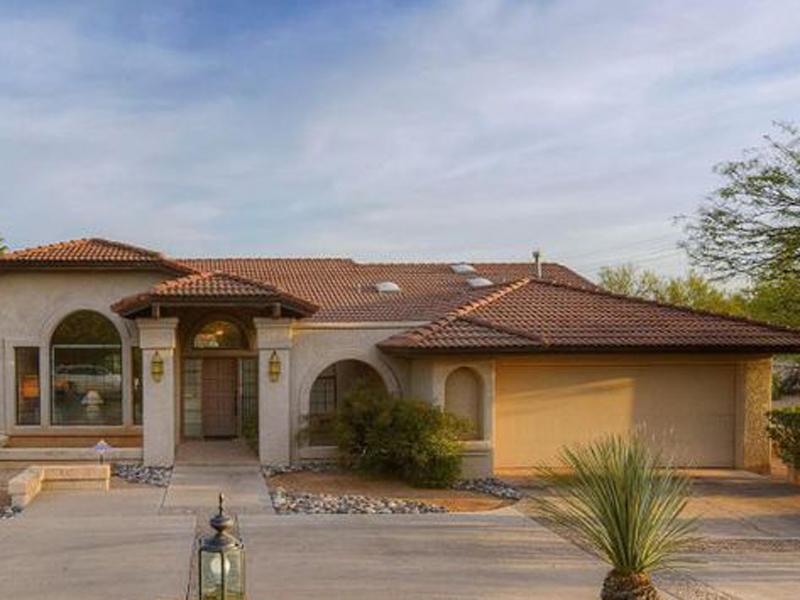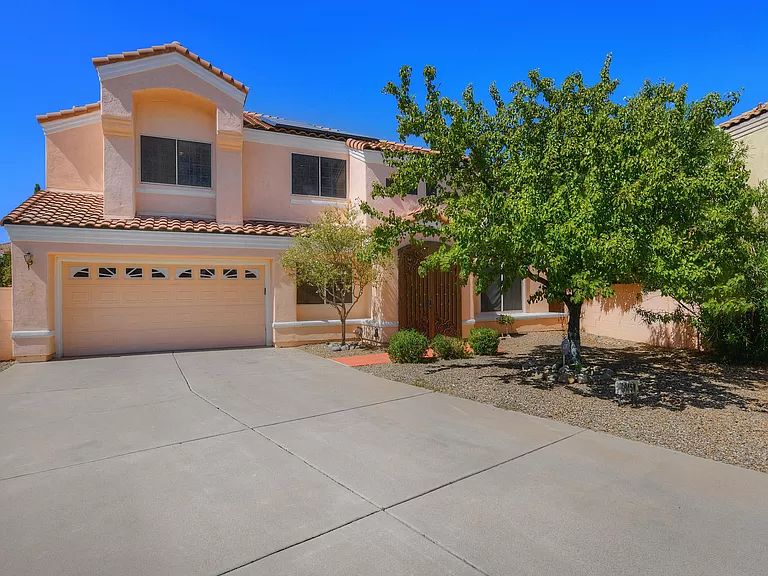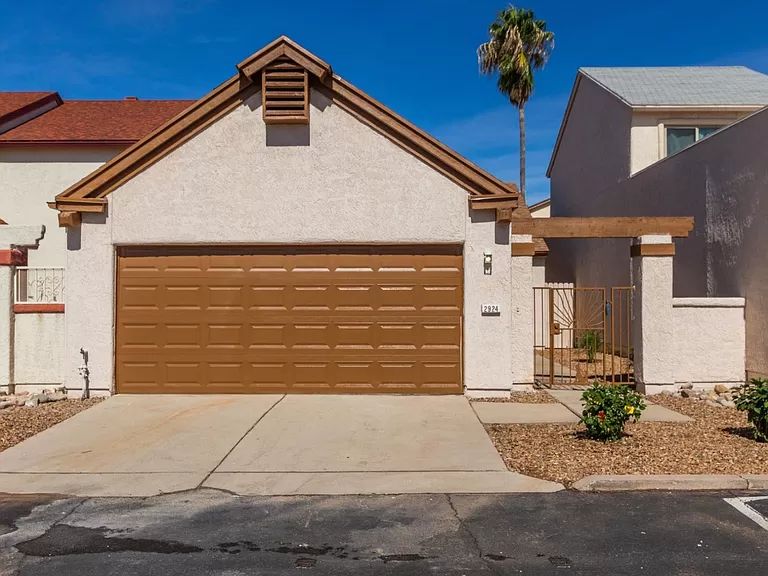Garage Door Closed - Specialist Repairing Tips
Is Your Garage Door Stuck? Right here's What to Do Very first
When your garage door will not open, begin with these vital safety and security checks before trying any type of fixings. Initially, guarantee no person is standing near the door which automobiles are free from the opening. Search for obvious indications of damage like broken panels, curved tracks, or hanging cable televisions. If you see a snapped springtime or seriously damaged components, stop instantly and call an expert—-- these repair services need customized devices and experience to take care of securely.

Inspect These 6 Things Before Calling a Specialist
Prior to thinking you require pricey repair work, go through this fast analysis checklist that fixes most garage door issues:
-
Source of power: Validate the opener is connected in and the outlet is working
-
Remote batteries: Change dead batteries in your remote control
-
Manual lock: Examine if someone inadvertently engaged the hand-operated lock
-
Obstructions: Seek debris blocking the door's path or sensors
-
Emergency launch: Ensure the red emergency situation cable hasn't been drawn
-
Breaker: Verify the garage circuit hasn't tripped
These basic checks resolve roughly 70% of garage door problems without calling for expert intervention.
10 Common Factors Your Garage Door Will Not Open Up
Comprehending why your garage door opener isn't functioning helps you select the right service. Here are the most frequent reasons home owners experience:
Dead remote batteries stand for the most basic fix—-- when batteries die, the remote can't send out signals to the opener. Power interruptions or stumbled breakers reduced power to the electric motor. Broken springs stop the door from raising effectively and require instant professional interest. Sensor imbalance causes safety systems to obstruct door operation. Track blockages stop rollers from relocating smoothly. Motor overload triggers automated shutoffs click here when the opener finds resistance. Limitation button problems confuse the opener about door position. Cable television damages interferes with the training mechanism. Weather-related issues influence door activity throughout extreme temperatures. Part wear from age slowly lowers system efficiency.
Issue # 1: Dead Remote Control Batteries
When your wall surface button works yet your remote does not, dead batteries are generally the culprit. A lot of garage door remotes use either 3-volt lithium or 12-volt alkaline batteries. Eliminate the back cover of your remote and examine the battery kind. Change with fresh batteries and examine the remote. If it still does not function, you might need to reprogram it to your opener. Consult your opener's guidebook for specific reprogramming instructions, as the procedure varies by producer.
Problem # 2: Power Supply Issues
Garage door power issues usually stem from loose connections or tripped circuits. Examine that the opener is strongly plugged into its electrical outlet—-- resonance can loosen links in time. Examine the outlet with an additional device to confirm it's working. Examine your home's breaker box for stumbled circuits, especially if you have actually experienced tornados or power fluctuations. GFCI outlets might have stumbled and require resetting. If the opener has power yet won't respond, the problem likely lies elsewhere in the system.
Problem # 3: Broken or Damaged Springs
Busted garage door springs are amongst the most harmful elements to take care of. If you listen to a loud bang from your garage or notice the door really feels incredibly heavy when attempting to raise by hand, a spring has most likely broken. Torsion springtimes run flat over the door, while extension springs remain on either side. Never attempt springtime fixings on your own—-- these components keep incredible stress that can create severe injury or death. Expert substitute usually costs $150-$300 however ensures your security.
Issue # 4: Obstructed Security Sensing Units
Modern garage doors feature safety and security sensors that stop closure when things are spotted. These sensing units can quit the door from opening up if they're filthy, misaligned, or blocked by particles. Tidy sensing unit lenses with a soft cloth and guarantee nothing blocks the undetectable beam in between them. Inspect that sensing units are appropriately lined up—-- the majority of have indicator lights that show connection condition. Sensor problems frequently resolve with simple cleaning and adjustment.
Trouble # 5: Track Obstructions or Damage
Garage door tracks guide rollers as the door goes up and down. Dust, debris, old grease, or little objects can jam the system. Check tracks aesthetically and get rid of any blockages with a brush or fabric. Seek damages, bends, or warping that could restrain smooth operation. Small track changes are feasible for useful property owners, but significant damage requires professional repair to prevent further issues or safety threats.
Issue # 6: Garage Door Opener Motor Issues
When the garage door motor runs yet the door does not move, numerous problems could be responsible. The electric motor may be strained and shutting off as a precaution. Equipment wear, especially in older systems, can avoid appropriate procedure. Chain or belt drive issues impact power transmission. If you listen to uncommon grinding, clicking, or humming noises, stop making use of the opener right away. Motor repair work usually set you back more than substitute, specifically for systems over ten years old.
Step-by-Step DIY Troubleshooting Overview
Follow this methodical approach to garage door fixing while prioritizing security throughout the procedure:
Action 1: Test the wall button initially. If it works but the remote does not, concentrate on remote concerns. If neither jobs, inspect power supply.
Action 2: Analyze the hands-on release cable. If it's been drawn, the opener is disengaged from the door. Push the trolley back to reconnect.
Step 3: By hand examine the door by disengaging the opener and trying to lift the door by hand. It must move smoothly and stay in location when half-open.
Tip 4: Evaluate visible components for damage, paying special focus to springtimes, cables, and tracks.
Tip 5: Examine all security features including sensors, restriction switches, and auto-reverse features.
Action 6: Examination different controls (remote, wall switch, keypad) to isolate the trouble resource.
Constantly wear safety glasses and job handwear covers when carrying out assessments, and never ever attempt repairs on springs or high-tension parts.
When to Call an Expert vs. DIY Solutions

Knowing when to call a garage door specialist versus trying do it yourself repair work safeguards both your safety and your budget. Handle these issues yourself: dead remote batteries, power supply issues, small track cleaning, sensor cleansing and placement, and standard lubrication.
Never ever try these repair work yourself: springtime substitute or adjustment, cable repair services, major track realignment, electrical wiring issues, opener motor replacement, or any kind of repair work involving high-tension parts. Specialist professionals have specialized devices, training, and insurance coverage to take care of dangerous fixings securely.
Take into consideration repair work expenses versus replacement expenses, especially for doors over 15 years of ages. Modern garage doors offer better security features, energy efficiency, and reliability than older versions.
Emergency Garage Door Solutions
When you're stuck to a garage door that won't open up and require instant access, comply with these emergency situation treatments:
Guidebook Operation: Pull the red emergency release cord to disengage the opener. This permits hand-operated operation yet needs correct technique to stay clear of injury. Raise the door slowly and evenly, making use of leg muscles as opposed to your back. A lot of household doors consider 100-150 pounds, making them convenient for a lot of grownups.
Short-lived Solutions: If the door opens up manually however won't stay up, prop it open with sawhorses or clamps—-- never ever use your body or cars as assistances. For doors that won't shut totally, ensure the opening is secured if you should leave.
Emergency Service: Lots of garage door business supply 24/7 emergency situation solution for scenarios including security issues, entraped vehicles, or full system failings. While much more costly than routine service phone calls, emergency repairs offer instant options when needed most.
Safety Warning: What NOT to Do
Garage door safety requires understanding dangerous repair work that should never be tried by property owners:
Never ever attempt to repair springs—-- they save enough power to cause fatal injuries when they break or are poorly taken care of. Do not compel a stuck door—-- this can damage the opener, tracks, or door panels, creating a lot more pricey troubles. Stay clear of bypassing safety functions—-- sensing units and auto-reverse systems avoid major injuries and property damages.
Don't neglect odd sounds—-- grinding, scraping, or banging audios show problems that aggravate in time. Never ever make use of the door if wires are frayed or broken—-- the door can fall unexpectedly. Do not attempt electric repair work unless you're a certified electrical contractor—-- garage door openers make use of both 120V house existing and low-voltage control circuits.

Preventative Upkeep to Stay Clear Of Future Issues
Regular garage door maintenance avoids most usual problems and expands system lifespan considerably:
Month-to-month Tasks: Aesthetic assessment of all parts, evaluating auto-reverse safety and security attributes, inspecting and tightening up hardware, and cleansing tracks and sensing units.
Quarterly Jobs: Oiling all moving parts with appropriate garage door lubricant, testing handbook operation, and inspecting climate sealing.
Yearly Tasks: Expert inspection and tune-up, spring change if required, and opener upkeep consisting of belt or chain modification.
Seasonal Tasks: Preparing for weather condition extremes, checking insulation, and changing opener settings for temperature changes.
Regular upkeep expenses far less than emergency situation repairs and ensures dependable procedure year-round.
Garage Door Won't Open Up Frequently Asked Questions
Why won't my garage door open with the remote but deals with the wall surface switch?
This generally indicates dead remote batteries, signal disturbance, or the demand to reprogram the remote. Inspect batteries first, after that consult your opener guidebook for reprogramming guidelines.
Can I by hand open my garage door if the power is out?
Yes, draw the red emergency launch cord to disengage the opener, after that raise the door manually. Be prepared for the door's complete weight and lift with correct strategy to prevent injury.
Exactly how do I understand if my garage door spring is broken?
Signs include a loud bang from the garage, the door feeling extremely hefty when lifting manually, noticeable voids in the springtime coils, or the door just opening up a couple of inches prior to stopping.
Is it risk-free to use my garage door if it won't open up right?
No, partial operation suggests mechanical issues that might intensify suddenly. Quit utilizing the door and have it inspected by an expert to prevent additional damages or injury.
What should I do if my garage door opens up yet will not close?
Check safety and security sensors for blockages or misalignment, analyze the tracks for debris, and test the auto-reverse function. If these don't solve the trouble, speak with an expert.
How much does it cost to deal with a garage door that will not open?
Expenses vary widely depending on the trouble: battery substitute ($5-$10), professional medical diagnosis ($50-$100), springtime replacement ($150-$300), or opener replacement ($200-$500).
Can weather influence my garage door's capacity to open?
Yes, severe cold can thicken lubricants and affect steel components, while warmth can cause growth concerns. A lot of problems resolve as temperature levels stabilize, but relentless concerns might require expert focus.
Why does my garage door open up a few inches then quit?
This usually indicates busted springs, limitation button issues, or track obstructions. The opener's safety and security features quit procedure when resistance is found, protecting against damage to the motor or door.
Obtain Specialist Aid for Facility Issues
When DIY repairing does not solve your garage door problems, professional specialists give the know-how and devices needed for safe, long lasting fixings. Certified experts diagnose problems properly, use manufacturer-approved components, and give warranties on their job.
Professional services include: extensive system assessments, spring and cord substitute, opener fixing and replacement, track placement and replacement, electric troubleshooting, and emergency service calls.
What to anticipate: ahead of time prices, qualified and insured specialists, same-day service for numerous repair services, and follow-up maintenance referrals.
Many garage door business use free estimates for significant repair services and can offer immediate services for immediate issues affecting home security or lorry gain access to.
Getting Your Garage Door Working Again
A garage door that won't open up doesn't have to wreck your day or damage your spending plan. Begin with straightforward troubleshooting actions like inspecting power, replacing batteries, and analyzing for obvious blockages. Several issues have quick do it yourself remedies that restore normal procedure within minutes.
However, acknowledge when specialist help is essential—-- especially for spring-related issues, electric issues, or complex mechanical failures. Trying harmful repair work on your own risks major injury and usually produces much more expensive issues.
Normal maintenance protects against most garage door concerns and guarantees reliable operation for several years to find. When problems do happen, resolve them without delay to stay clear of more pricey fixings and preserve your home's safety and security and convenience. Whether you require a basic battery substitute or total system overhaul, solutions exist to get your garage door functioning efficiently again.
Eddie's Garage Door Service
5505 N La Canada Dr, Tucson, AZ 85704
(520) 965-8259